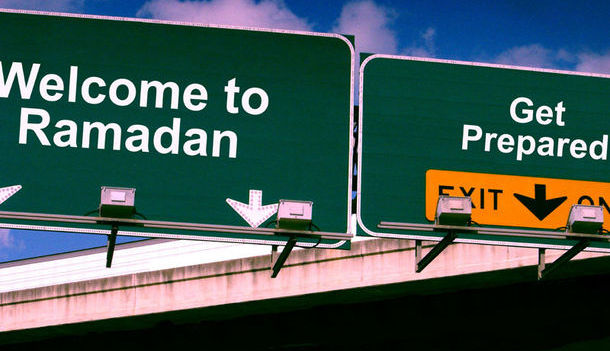The Prophet (pbuh) arrival in Madinah was a turning point for the Muslim community. Abdullah b. Salam, a Jewish scholar, was awaiting his arrival along with the rest of the city. It was a huge celebration – children were singing, drums playing, and everyone was excited to finally see the Messenger of God.
Abdullah b. Salam was interested in seeing who this man was and if he actually did fit the description of the coming Prophet mentioned in the Torah. He described the scene after his arrival, saying there were so many people, I was on my toes trying to get a look at him. The crowd was so large that some people were climbing up palm trees just to get a glimpse of him. Finally, Abdullah saw his face. He said, I knew right then and there that his face was not the face of a liar.
Then, the Prophet (pbuh) started to speak. “Ya ayyuhal-nas! Everyone, listen close!” The crowd went silent. At this crucial moment when the whole community was gathered and waiting on his first words – Abdullah b. Salam tells us the inaugural address of the Messenger (pbuh):
“Spread the greeting amongst yourselves, feed the needy, maintain a strong family relationship, pray during the night while others are asleep, and you will enter Jannah safe and sound.”
The first thing we notice is that Abdullah b. Salam (pbuh) recognized the truthfulness and sincerity of the Prophet (pbuh) just by looking at him. It was visible on his face, his body language and this gave him credibility because it supported his message. Abdullah accepted Islam and became one of the prominent companions. In an authentic Hadith in Sahih Bukhari it is narrated by Anas that:
“When ‘Abdullah b. Salam heard the arrival of the Prophet (pbuh) at Madinah, he came to him and said, “I am going to ask you about three things which nobody knows except a prophet: What is the first portent of the Hour? What will be the first meal taken by the people of Paradise? Why does a child resemble its father, and why does it resemble its maternal uncle.”
Allah’s Apostle (pbuh) said, “Gabriel has just now told me of their answers.”
Abdullah said, “He (i.e. Gabriel), from amongst all the angels, is the enemy of the Jews.”
Allah’s Apostle (pbuh) said, “The first portent of the Hour will be a fire that will bring together the people from the east to the west; the first meal of the people of Paradise will be Extra-lobe (caudate lobe) of fish-liver. As for the resemblance of the child to its parents: If a man has sexual intercourse with his wife and gets discharge first, the child will resemble the father, and if the woman gets discharge first, the child will resemble her.”
On that Abdullah b. Salam said, “I testify that you are the Apostle of Allah.”
Abdullah bin Salam further said, “O Allah’s Apostle! The Jews are liars, and if they should come to know about my conversion to Islam before you ask them (about me), they would tell a lie about me.”
The Jews came to Allah’s Apostle and Abdullah went inside the house. Allah’s Apostle asked (the Jews), “What kind of man is Abdullah b. Salam amongst you?”
They replied, “He is the most learned person amongst us, and the best amongst us, and the son of the best amongst us.”
Allah’s Apostle (pbuh) said, “What do you think if he embraces Islam (will you do as he does)?”
The Jews said, “May Allah save him from it.”
Then Abdullah b. Salam came out in front of them saying, “I testify that None has the right to be worshipped but Allah and that Muhammad is the Apostle of Allah.”
Thereupon they said, “He is the evilest among us, and the son of the evilest amongst us,” and continued talking badly of him.” [Sahih Bukhari, Volume 4, Book 55, Number 546]
Spread the Greeting
I’ve moved around quite a bit the past few years. One of the first things I notice about a city is how often people greet one another. Some cities feel downright gloomy because its residents barely crack a smile. We underestimate the impact of a simple hi. Have you ever had a not-so-good day and someone genuinely smiled at you and asked you how you were doing? It made your day, right? Greeting people is a way to build relationships and develop traits like compassion and empathy. The Prophet (pbuh) is teaching us to not live in a bubble. Greeting someone means we are aware of their presence, mood and circumstances. If we walk by one another without a care in the world, our connection as fellow people will significantly decline. You won’t ignore someone if you see they are in low spirits or even in need of help if you initiate a greeting. This why the Prophet (pbuh) tells us in another hadith, spreading salaam will increase the love between all of you. It is the first step in cultivating a relationship with others.
Feed the Needy
This is the next step after greeting people. While feeding those in need is a good deed, the bigger picture here is that the believer is socially conscious and an active member of the community. They are critically aware of what is going on around them and what they do what they can to help. Islam teaches a sense of responsibility to ourselves, our families and our communities. Providing food for those in need is one of the ways to fulfill our communal duties. Similarly, this is a recipe for building compassion. The Prophet (pbuh) taught us that interacting with people directly will connect us to one another. He tells us to wipe the heads of the orphans, to shake the hand of our fellow brother or sister and to help the person with a heavy load. Feeding is a theme that comes up again and again in the Quran, many times coupled with other acts of worship like prayer, illustrating the multifaceted nature of worship in our religion. An important point here is that being socially active is not done for recognition or an award or for the sake of taking up a social cause. The Quran tells us that the motivation of those who feed the needy is loving God, not praise or recognition (76:8-9). Loving God and being conscious of Him translates into taking care of those around them.
Maintaining a Strong Family Relationship
The next advice is to maintain strong family ties. We have all seen it in our communities: people who are active, first in line for prayer or first to provide a service yet it is well-known that they treat their family terribly. The Prophet (pbuh) is telling us here that if your Islam is not making you a better family person then you have not embodied the core principles of the religion. Allah includes the rights of others, including our families, among His Rights. So, maintaining and developing a strong family unit is fulfilling the right of Allah.
Relationships is the theme emphasized by the Prophet (pbuh) as he first addresses his new community, teaching us that our relationships are the infrastructure of our communities. Often times when we talk about taqwa, developing a consciousness and awareness of Allah, it is done in relation to halal/haram. In doing so, we overlook the context of 90% of taqwa’s mention in the Quran – our relationship with people and our character. Allah tells us to embody justice in all of its forms – whether it is being an honest employee, spending time with your family, feeding the poor or not littering – because it is the height of piety (5:8).
Night Prayer
The final advice of the Prophet (pbuh) connects the dots between our devotional acts of worship and day-to-day life. He gives us our spiritual fuel. The Prophet (pbuh) recognizes that consistently doing the above three advices is not easy. It takes time, effort and self-discipline. So, how do we help ourselves in doing the above three? Praying during the night while others are sleeping. This is how we cultivate and strengthen our personal relationship with Allah. We are taught here that prayer, along with other personal acts of worship, are not just rituals. They are a means to build a relationship with God.
Worship will renew us spiritually when we feel worn out from our social activities. When activists and Islamic workers face burnout, we overlook one of the root causes which is a lack of a relationship with Allah. Without this fuel, we will keep draining ourselves until there is nothing left to drain. The Prophet (pbuh) is teaching us to always take time for our personal relationship with Allah. It will give us the inner strength and energy to sustain our relationships and service to others.
The Prophet (pbuh) ends by saying if one follows this formula, they will reach Paradise in peace. There are no gimmicks or loop holes here. We are given our fuel, personal devotion to Allah, and our vehicle, social relationships, to get there bi salaam, safe and sound with nothing to worry about.
Practical Spirituality
Oftentimes when we learn about tazkiya or purification of the heart, it becomes something abstract and reduced to catch phrases like “be patient” and “have taqwa”. We don’t really know how turn “be patient” into self-development. The dots aren’t connected for us and we don’t know how to connect them ourselves. For some, Islam becomes something purely external and ritualistic. It becomes about halal and haram. For others, Islam is about a “cause”, focusing on social activism or islamic work. The bottom line is that we pray, we fast, we go for hajj while we have some deep-seated spiritual and ethical ailments.
In this hadith, the Prophet (pbuh) addresses both groups of Muslims – those who focus solely on devotional acts of worship such as prayer while falling short in their relationships and those who excel in their relationships and social causes but fall short in their worship. He (pbuh) gives us a practical formula to excel in both aspects of our Islam, when consistently maintained, will lead us to Paradise.
We all know the ayah that tells us our purpose in life. Allah tells us, “I have not created man and jinn except to worship me.” (51:56)
Yet we often forget the accompanying hadith. The Prophet (pbuh) tells us he was sent to “perfect good manners”. What does this mean? It means that I have been sent to bring out the best in you, to bring out the best in people.
Islam, when done right, makes us better people – in all aspects of our lives. This is practical spirituality. We look at the Companions and see how they were transformed – they did not just start praying, but they reached the height of their potential as human beings as servants of God, as strong family men and women, and as people who served their communities.
My esteemed brother and sister, let us receive the month of Ramadan with building our personal relationship with Allah (swt), and have our own personal development in place. Lets spiritually nourish ourselves and connect the dots between all aspects of our spirituality to become people who take Islam beyond superficial definitions and ritualistic schedules. As righteous servants of Allah, we welcome it with repentance and true determination to reap its benefits and fully utilize its precious time and ask Allah to help us perform our acts of worship in the best manner.
 navedz.com a muslim's Quest for the truth
navedz.com a muslim's Quest for the truth








Ayat from the Qur’an
“It is not righteousness that you turn your faces towards East or West; but it is righteousness¯to believe in Allah and the Last Day and the Angels and the Book and the Messengers; to spend of your substance out of love for Him, for your kin, for orphans for the needy, for the wayfarer for those who ask and for the ransom of slaves; to be steadfast in prayer and practise regular charity; to fulfil the contracts which you have made; and to be firm and patient in pain (or suffering) and adversity and throughout all periods of panic. Such are the people of truth the Allah-fearing”.
Surah Baqara, Verse 177
A Brief explanation of this Ayah
– Allah (Azzawajal) first commanded the believers to face Bayt Al-Maqdis, and then to face the Ka`bah during the prayer. This change was difficult for some of the People of the Book, and even for some Muslims. This verse also indicates the true practise of this deen isn’t defined by ritualised prayer, but is much wider encompassing, and highlights some of the stages of developing yourself – firstly the core of belief, and this belief should lead to an attachment (love), this love should then compel you to spend of what you have been blessed with, and how you spend has been defined too, whether of time (and ability) through prayer, or wealth, through charity. In addition to this Allah also addresses those who are on the other end of the spectrum, and are in need to assistance or are going through hardship, by advising patience. It is amazing that both the first part of the verse, essentially shukr, and the latter part, Sabr, are pivoted around the sentence “to fulfil the contracts which you have made”.. because indeed we have made a contract with Allah, and with others formally, and informally, and fulfilling these is virtuousness…but to do these things out of love…which Allah prioritised, highlights what is better.
– Then Allah sent revelation which clarified the wisdom behind this command, that is, obedience to Allah, adhering to His commands, facing wherever He commands facing, and implementing whatever He legislates, that is the objective. This is Birr, Taqwa and complete faith.
– Sufyan Ath-Thawri (RahimAllah) recited “…but Birr is the one who believes in Allah”, and said that what follows (i.e. the other mentioned acts in the ayat) are the types of righteousness.
– We know from a-hadith that good deeds wipe out bad deeds and in the above ayat Allah indicates that amongst the noble way of attaining righteousness and doing good deeds in spending in the way of Allah Azzawajal and for His sake only. There so many charitable causes out there, and the Ummah today is in need of financial support more than ever before so give sadaqah, Zakat for surely Allah has promised “Those who (in charity) spend of their goods by night and by day, in secret, and in public, have their reward with their Lord: on them shall be no fear, nor shall they grieve” [2:274]
May Allah Jallahu Ala give us all the ability to attain righteousness especially during the blessed month of Ramadan.
Thus, worship in Islam, whether ritual or non-ritual, trains the individual in such a way that he loves his Creator most and thereby gains an unyielding will and spirit to wipe out all evil and oppression from human society and make the word of God dominant in the world.
Ever since time began, Allah’s (God’s) prophets and messengers have called people to the true path. Some people heeded this call and surrendered themselves to Allah, thus attaining an honorable life in this world and in the Hereafter. Others persisted in their unbelief, thus earning a troubled and difficult life in this world and eternal suffering in the Hereafter. Just like the other prophets sent by Allah, the Prophet Jesus (peace be upon him) commanded his society to worship Allah, the One and Only, and to live with the knowledge that they will have to account for themselves on the Day of Judgment, recommended that they live by moral values that please Allah, and called on them to avoid denial, polytheism, and evil in all of its forms. Those who rejected his call tried to pressure him and those who followed him to give up their mission. For that reason, as has happened with many prophets and believers throughout history, they set traps for the Prophet Jesus (pbuh). One of these was how they would kill him.
Thus, worship in Islam, whether ritual or non-ritual, trains the individual in such a way that he loves his Creator most and thereby gains an unyielding will and spirit to wipe out all evil and oppression from human society and make the word of God dominant in the world.